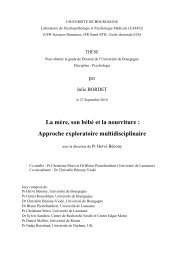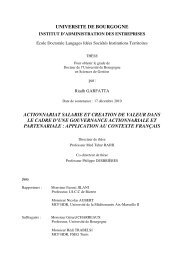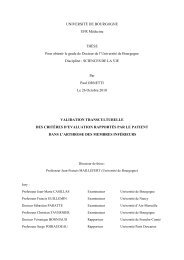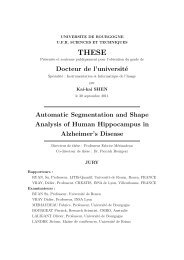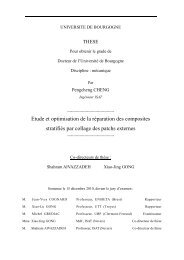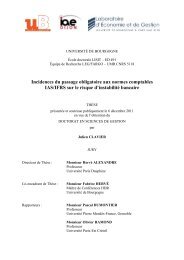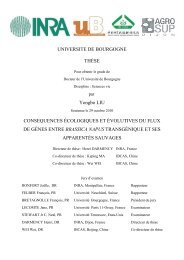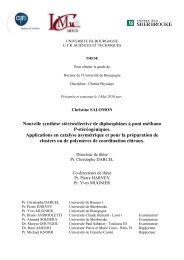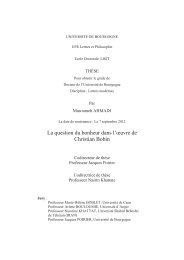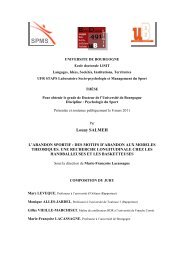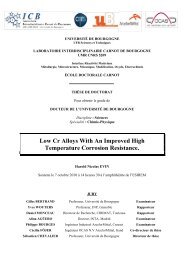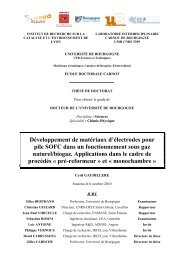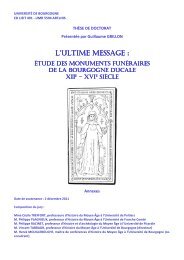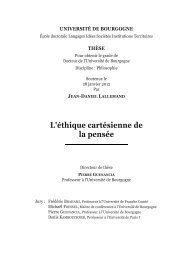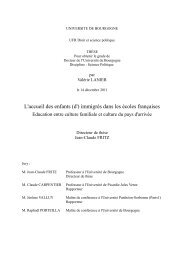Higher education in Asian countries and the role of international ...
Higher education in Asian countries and the role of international ...
Higher education in Asian countries and the role of international ...
You also want an ePaper? Increase the reach of your titles
YUMPU automatically turns print PDFs into web optimized ePapers that Google loves.
45<br />
Behavioralist assumes that <strong>the</strong> activities <strong>of</strong> IGOs <strong>and</strong> political <strong>in</strong>stitutions are based on<br />
fundamental social forces so that <strong>the</strong> study <strong>of</strong> IGOs <strong>and</strong> <strong>in</strong>stitutions should commence with study<br />
<strong>of</strong> society, culture, <strong>and</strong> human key actors. In this regard empirical <strong>and</strong> quantitative research<br />
methodologies are applied to study <strong>the</strong> cause <strong>and</strong> <strong>the</strong>ir effect. The empirical data on member<br />
states <strong>of</strong> an IGO may <strong>in</strong>clude <strong>the</strong> weight <strong>of</strong> <strong>the</strong> vote <strong>of</strong> a state, status <strong>in</strong> <strong>the</strong> world economy, level<br />
<strong>of</strong> technological development, military power etc. The Behvioralism <strong>the</strong>ory helps to f<strong>in</strong>d<br />
systematic explanations about political phenomena <strong>and</strong> outcomes <strong>of</strong> IGOs. Behavioralism seeks<br />
to exam<strong>in</strong>e <strong>the</strong> behavior, actions, <strong>and</strong> acts <strong>of</strong> <strong>in</strong>dividuals <strong>and</strong> groups <strong>in</strong> different social sett<strong>in</strong>gs<br />
(Walton, 1985) to underst<strong>and</strong> <strong>the</strong> behavior <strong>of</strong> political <strong>in</strong>stitutions that <strong>the</strong>y form.<br />
3.4.5.5 Functionalism<br />
The formation <strong>of</strong> tow <strong>in</strong>tergovernmental organization (IGOs) <strong>in</strong> Europe, International Telegraph<br />
Union (1865) <strong>and</strong> <strong>the</strong> Universal Postal Union (1874) gave birth to <strong>the</strong> doctr<strong>in</strong>e <strong>of</strong> functionalism<br />
<strong>in</strong> <strong>the</strong> field <strong>of</strong> <strong>in</strong>ternational relations. Accord<strong>in</strong>g to this doctr<strong>in</strong>e, IGOs can provide a practical<br />
solution to <strong>in</strong>ternational problems faced by <strong>the</strong> member states. The very early experiment <strong>of</strong><br />
IGOs development was successful <strong>and</strong> functional so this doctr<strong>in</strong>e streng<strong>the</strong>ned <strong>the</strong> idea <strong>of</strong><br />
<strong>in</strong>ternationalism <strong>and</strong> <strong>in</strong>ter-governmentalism that drove its force form functionalism. Accord<strong>in</strong>g<br />
to functionalists, common <strong>in</strong>terests, mutual needs <strong>and</strong> shadow <strong>of</strong> future lead sovereign state <strong>and</strong><br />
o<strong>the</strong>r actors to enter <strong>in</strong>to a bond<strong>in</strong>g that results <strong>in</strong>to <strong>the</strong> formation <strong>of</strong> <strong>in</strong>tergovernmental<br />
organizations, whereas accord<strong>in</strong>g to realists, states enter <strong>in</strong>to IGO bond<strong>in</strong>g only to protect <strong>and</strong><br />
maximize self-<strong>in</strong>terests. Fit for purpose is <strong>the</strong> corner stone <strong>of</strong> functionalism: an IGO designed to<br />
achieve specific goals must help to materialize <strong>the</strong> set objectives, only <strong>the</strong>n it can be considered<br />
as a fully functional body. An IGO can be s<strong>in</strong>gle purpose or multipurpose <strong>in</strong> its design, for<br />
example World Food Program (WFP) is a s<strong>in</strong>gle purpose while UNESCO is a multipurpose IGO.<br />
Functionalism <strong>the</strong>ory upholds that states form IGOs <strong>and</strong> <strong>the</strong>se IGOs drive authority from <strong>the</strong><br />
participat<strong>in</strong>g actors <strong>and</strong> <strong>the</strong>n this authority, <strong>in</strong> a fully functional IGO, is obeyed by members <strong>and</strong><br />
<strong>in</strong> some case non-members are also pushed to do so i.e. apply<strong>in</strong>g economic embargo, fight<br />
aga<strong>in</strong>st terrorism etc. The <strong>the</strong>ory <strong>of</strong> functionalism is based on few assumptions: states or actors<br />
can enter or leave IGO, <strong>the</strong> <strong>in</strong>tegration <strong>of</strong> state does not affect <strong>the</strong> state sovereignty or human<br />
freedom, <strong>the</strong> collective governance derives/ distributes power <strong>and</strong> resources accord<strong>in</strong>g preset<br />
formula. In 21 st century sett<strong>in</strong>gs, <strong>the</strong> expansion <strong>of</strong> knowledge economy is push<strong>in</strong>g functionalists<br />
to <strong>in</strong>tegrate modern knowledge <strong>in</strong> IGOs sett<strong>in</strong>g so that <strong>in</strong>ternational bodies could meet <strong>the</strong>



